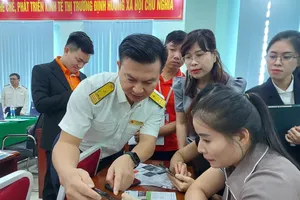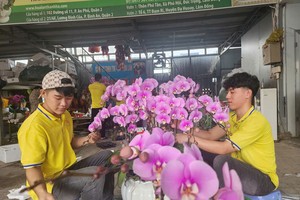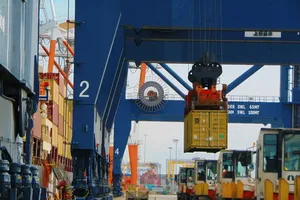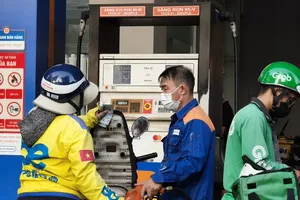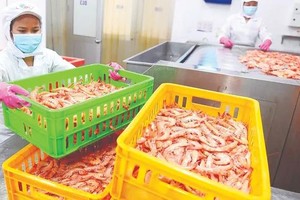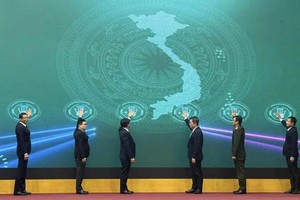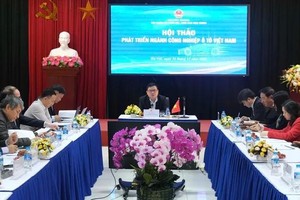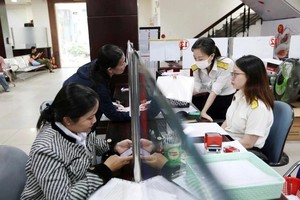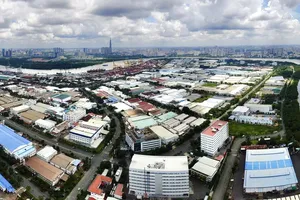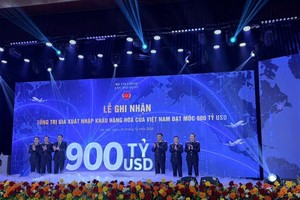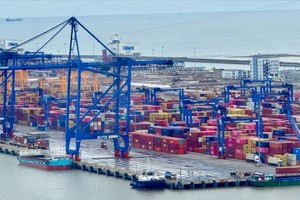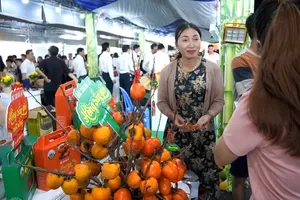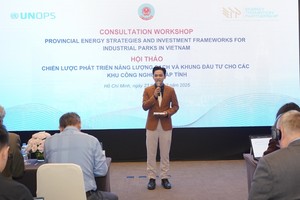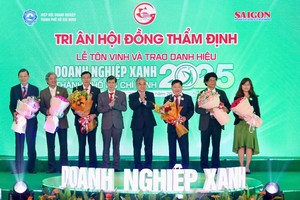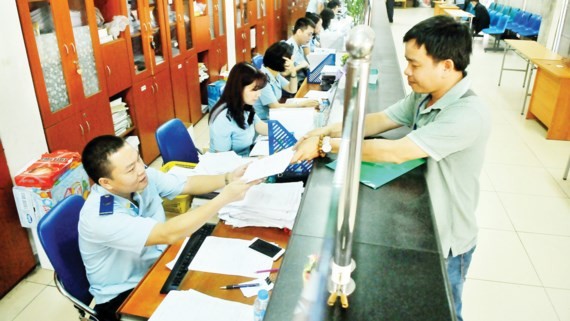
The dialogue about export import procedures was attended by over 200 European businesses.
Opening the meeting, Mr. Hoang Viet Cuong, deputy head of the general department who is in charge of HCMC Customs Department, said that the EU is a large trade and investment partner of Vietnam. Vietnam-EU bilateral trade turnover increased nearly 11 times from US$4.1 billion in 2000 to $45 billion in 2016. It is expected to reach $50 billion this year.
Therefore, the general department has paid attention to facilitating export import activities of businesses in general and EU enterprises in particular.
At present, cargo customs clearance time has reduced from 138 hours to 90 hours for import goods and from 108 hours to 70 hours for export items. The ratio of goods at yellow import line has dropped from 38 percent to 20 percent.
In 2017, the customs industry has sped up online customs procedures and national one door mechanism and gradually improved institutions to implement ASEAN one door mechanism.
However, Ms. Almut Roessner, executive director of European Chamber of Commerce in Vietnam (EuroCham), said that customs procedures were also complicated and short of transparency.
Surveys conducted by EuroCham show that at least 25 percent of import consignments must undergo reevaluation. Enterprises neither know reasons nor find regulations on the reevaluation of export import goods.
Regulations on customs officials’ behavior are unclear and businesses are usually unable to do customs clearance procedures for their goods in case of having disputes with customs sides.
Making a guaranteed payment will help businesses do import procedures more advantages than disadvantages. The issue has been popular and plagued European businesses.
A representative of Duc Cuong Seafood Company told that the company had a consignment of import goods valued 2-5 times higher than the declared value by the company.
The company many times proposed customs agency to reevaluate the consignment. Afterwards the agency decided to refer to products with similar value imported 3-6 months ago to determine the consignment’s value. However, it has been unable to find the similar value product. So the consignment should have been taxed according to its declared value as per regulations but customs agencies do not accept.
Representatives of other businesses at the meeting said that some provincial customs divisions have valued goods basing on price decisions in the customs data system or references on the Internet and that is not in accordance with regulations.
In response, Mr. Nguyen Quoc Toan, deputy head of the Export Tariff Division under the HCMC Customs Department, affirmed that there is a difference in survey results by EuroCham and the General Department of Vietnam Customs.
Statistics by the department show that only 2-3 percent of goods must undergo goods reevaluation. The ratio of 25 percent announced by EuroCham comprises import items which are presents and samples.
Goods reevaluation will be conducted when customs agencies have doubts about wrong declaration of goods value by enterprises. In this case, businesses are responsible for proving that their declared number is right or carrying out price quotations to determine goods value.
Customs agencies must abide by regulations, operate transparently and respect the declared value by enterprises, add Mr. Toan.
Mr. Hoang Viet Cuong, deputy head of the General Department of Vietnam Customs, advised enterprises to choose prestigious agencies when doing customs clearance procedures at border gates.
The general department has announced the list of disreputable agencies who have taken advantageous of enterprise signatures to conduct trading frauds.
Businesses can send their complaints about harassing behaviors by customs officials to heads of provincial customs divisions or the general customs department for consideration and settlement.
The customs industry will positively popularize legal documents and new regulations for businesses to be aware of.
The industry and EuroCham has agreed to increase dialogues to make information transparent and guide enterprises to do customs clearance procedures.
